Retirement is a lot harder now. Here’s how people are making it work
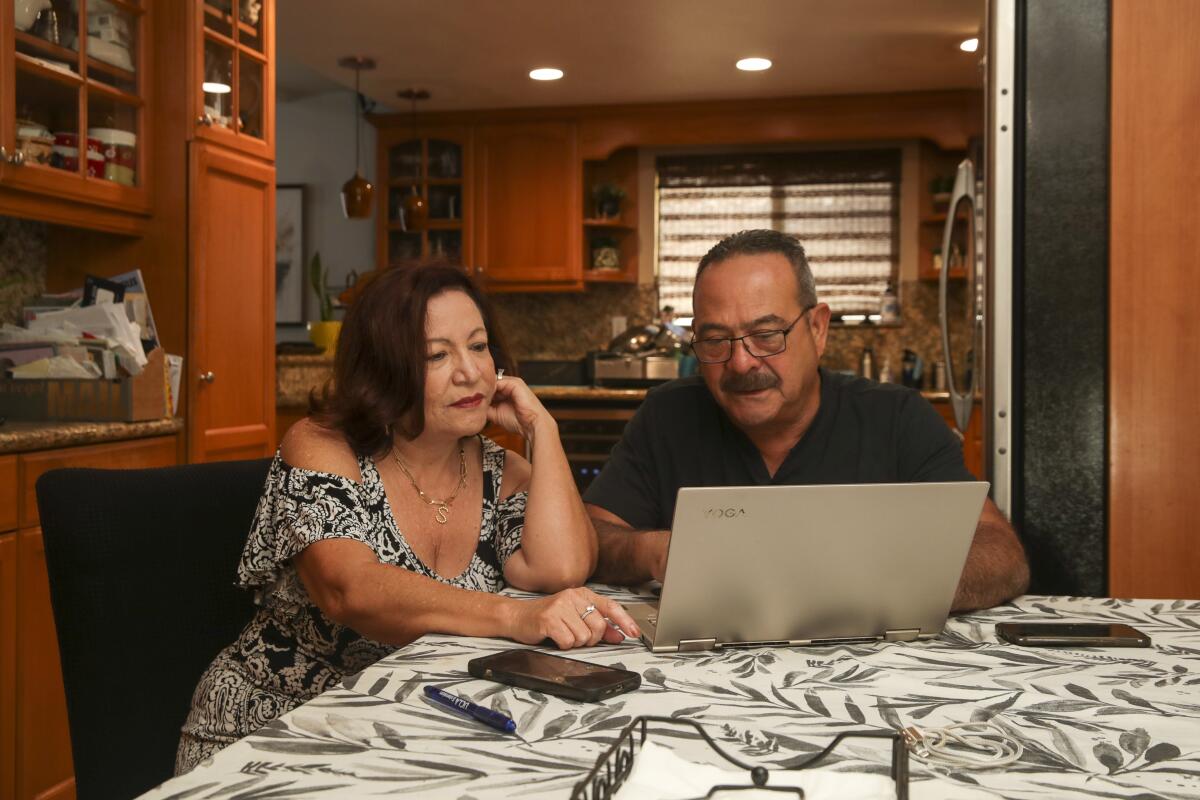
Retirement: The word conjures up thoughts of relaxing on a tropical beach, playing with grandkids and taking up birdwatching or gardening.
But the nature of retirement as a reliable reward for a lifetime of work is changing with the uncertain times. Many Americans found themselves forced into an early retirement when they lost their jobs during the COVID-19 pandemic. Unable to find new employment, they pinched their pennies and bunkered down at home.
For some, the high mortality rate of COVID-19 in seniors and the unpredictability of the world gave them resolve to enjoy the years of life they had left. Others, flummoxed by the sudden drop in their 401(k)s and the rising cost of necessities, opted to put off retiring or even return to the job market.
“What this is showing people is that they can’t count on the last several years where the stock market pretty much just grew,” said David John, a senior strategic policy advisor at the AARP Public Policy Institute. “There’s more of a worry factor there to make sure that they have a significant amount.”
A quarter of Americans think they’ll need to delay their retirement because of inflation, according to a BMO Harris poll, and a survey of retirees by AARP found 29% are either currently working out of financial necessity or expect they’ll have to find work in some form.
Renee Ward, who runs a nationwide job bank called Seniors4Hire, said her organization has seen an uptick in people trying to come out of retirement or retirees needing to supplement their income.
“They are worried and just want to hedge their bets,” Ward said.
The labor force of people ages 75 and older is expected to nearly double by 2030, according to Bureau of Labor Statistics projections. And among those ages 55 and older, the number of full-time employees in May 2022 was the highest it’s been in data dating to 1986.
What’s clear is that retirement is no longer a simple end point for most people. These 11 stories capture some of the varied forms retirement takes today.
‘Maybe I should have stayed at my job longer’
Growing up as a Black person in Los Angeles, Steven Wright wondered whether he’d live to see old age, having seen so many of his peers die prematurely. So when Wright stood at the retirement ceremony hosted by his wife, Angela, in 2018, he figured he was ready for life after work at age 62.

Wright had a pension and was told he had lifetime medical coverage from 32 years of working for the city of Los Angeles in the Department of Transportation, most recently in the special events unit, where he helped route traffic during presidential visits, among other duties.
He planned to spend much of his time mentoring young men, teaching them how to fish on his boat and talking to them about how to achieve their goals, as his grandfather had done for him.
Four years later, Wright wishes he had sought expert financial advice instead of relying on guidance from the city that was, he says, lacking in substance and detail.
“A lot of things I could have considered are things that I didn’t think about until I was retired, which is really too late,” Wright said. “Questions like how much inflation will there be? How high are prices going to be? Now that I’m actually feeling it and seeing what it’s like, retirement is not what I expected.”
Don’t let the bear market keep you from retiring. But there are a bunch of other financial and emotional factors to consider before taking the leap.
Wright went back to work, as a paralegal at a Los Angeles law firm. “I’ve been doing that pretty much to stay afloat,” Wright said. “I’ve thought, ‘Maybe I should’ve stayed on at my job longer until retirement age.’ It was a good job.”
Wright’s boat, a 21-foot cuddy cabin, remains moored at dock, just like his fishing/mentoring ministry. “I’ll never leave that dream behind, but I know I’m not going to be able to do it tomorrow,” he said.
‘I don’t want to be that person’
“It would be nice to eventually have the American dream,” Christie Sasaki, 54, said. “Retire one day after numerous years of work.”
Sasaki’s been working since she was 16 and has spent most of those years at Pavilions, a grocery chain owned by Vons. She made her way up from the bottom to her current role as a front-end supervisor.
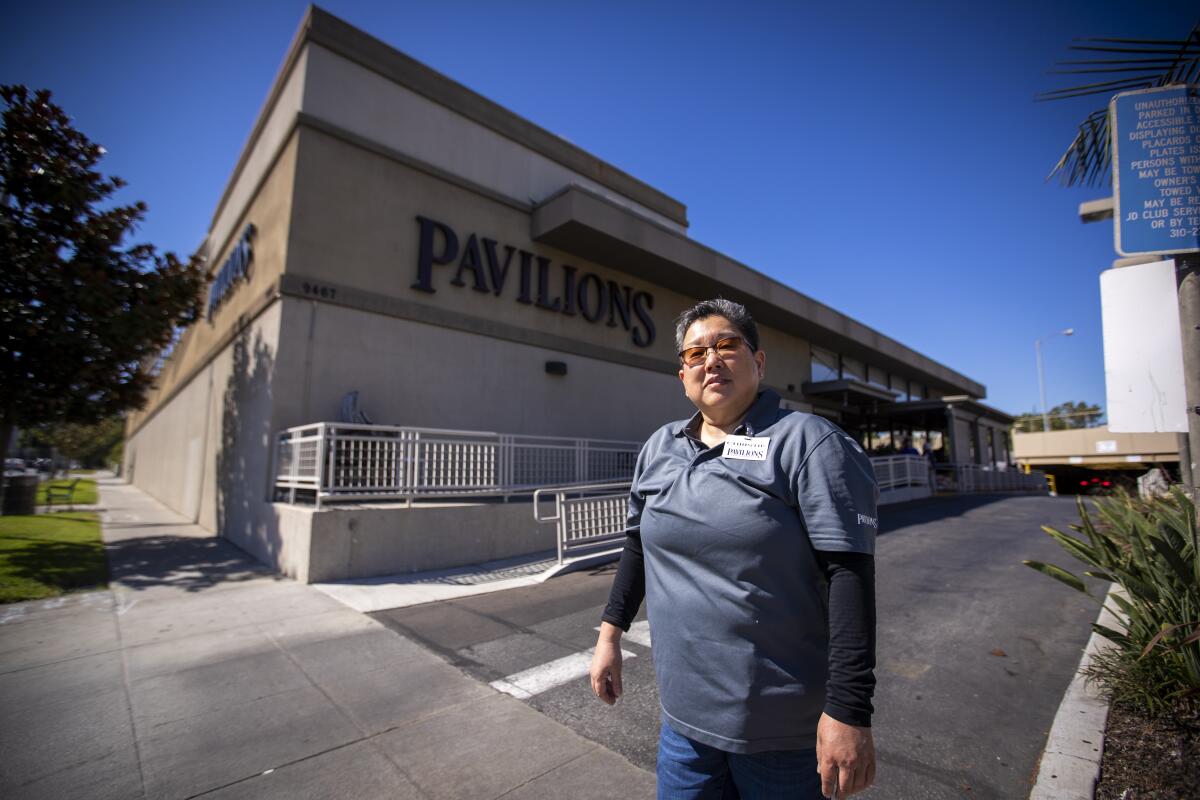
With a good pension plan and years of putting 10% of her paycheck into her 401(k), Sasaki had planned to leave when she reached her “golden 85” — when her age plus her years vested with the company totals 85, allowing her to get the maximum payout from her pension. Her 401(k) plan doesn’t have an employer match.
She didn’t intend to stop work entirely but was looking forward to finding some kind of job “with passion and joy, you know, something that brought a lot of happiness to my life.”
But her golden 85 flew by in December, and she doesn’t think she can leave quite yet. Her daughter is only 14, and she’s the breadwinner of the family while her husband focuses on child-rearing. Her husband retired 12 years ago at age 53 after reaching his golden 90, also at Pavilions, where he worked as a night crew manager.
Then the stock market plummeted in June and she realized the money she had invested in her 401(k) wasn’t something she could depend on at the moment.
“That brought a tear to my eye when I saw that,” Sasaki said.
For now, Sasaki plans to stay at Pavilions at least until her daughter graduates from high school, helping her through college if possible. But in the back of her mind, she’s always wondering: Will her savings ever be enough?
Sasaki said she’s seen older individuals come into her store, many on food stamps, and have to change the way they eat because of their income.
“I don’t want to be that person who has to shop at my store and buy nothing but really high carbed-up foods or, you know, day-old stuff,” Sasaki said. “It’s just really sad.”
‘I still feel a little bit of anxiety’
Walnut resident Susan Trigueros has been retired for only the last two months and already she’s thinking about things she thought she’d left behind for good: the long list of work-related contacts she made working for an energy company, her work on many boards and associations. In short, she’s thinking about all of the people and places that could help her leave retirement.
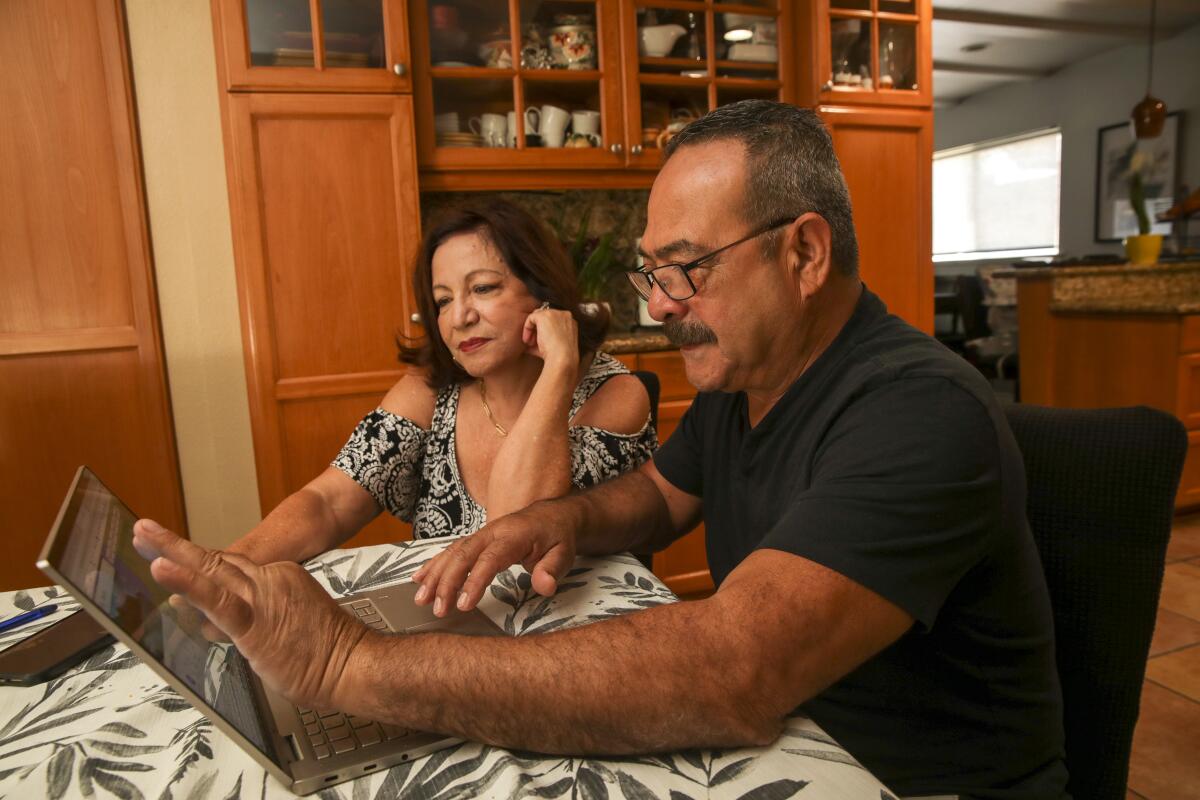
Trigueros, 63, is worried she didn’t save enough before calling it quits on her career. “I have savings, a great pension, but I think I started saving too late,” Trigueros said. “You never have complete confidence about it. I hold myself accountable for not doing a better job saving. I didn’t do it until I was in my 30s.”
She’s also worried about being able to meet the needs of her large family.
“My husband and I have seven children and almost eight grandchildren; one more on the way,” she said. “My sister and I split care for our 90-year-old mother, who has severe dementia. I’m concerned about her well-being. I worry about all of my family that way.”
With inflation and the cost of living also weighing on her mind, Trigueros has had to remind herself that she has worked with a financial advisor and needs to trust his judgment.
More than 7 million Californians have had no access to a workplace retirement program. Can the CalSavers program help?
“He did scenarios for me, best and worst case. And even in the worst case scenario, I’ll be OK, he says, but I still feel a little bit of anxiety,” she said. “That anxiety is why I’m already thinking about possibly returning to work. I’ve gained a lot of skills that I believe could be marketable.”
Trigueros added, “I think I could probably consult. I could probably work part time helping young people achieve their potential, although at this point, I’m just trying to enjoy, or get acclimated to, retirement.”
‘I thought I had a few more years to work’
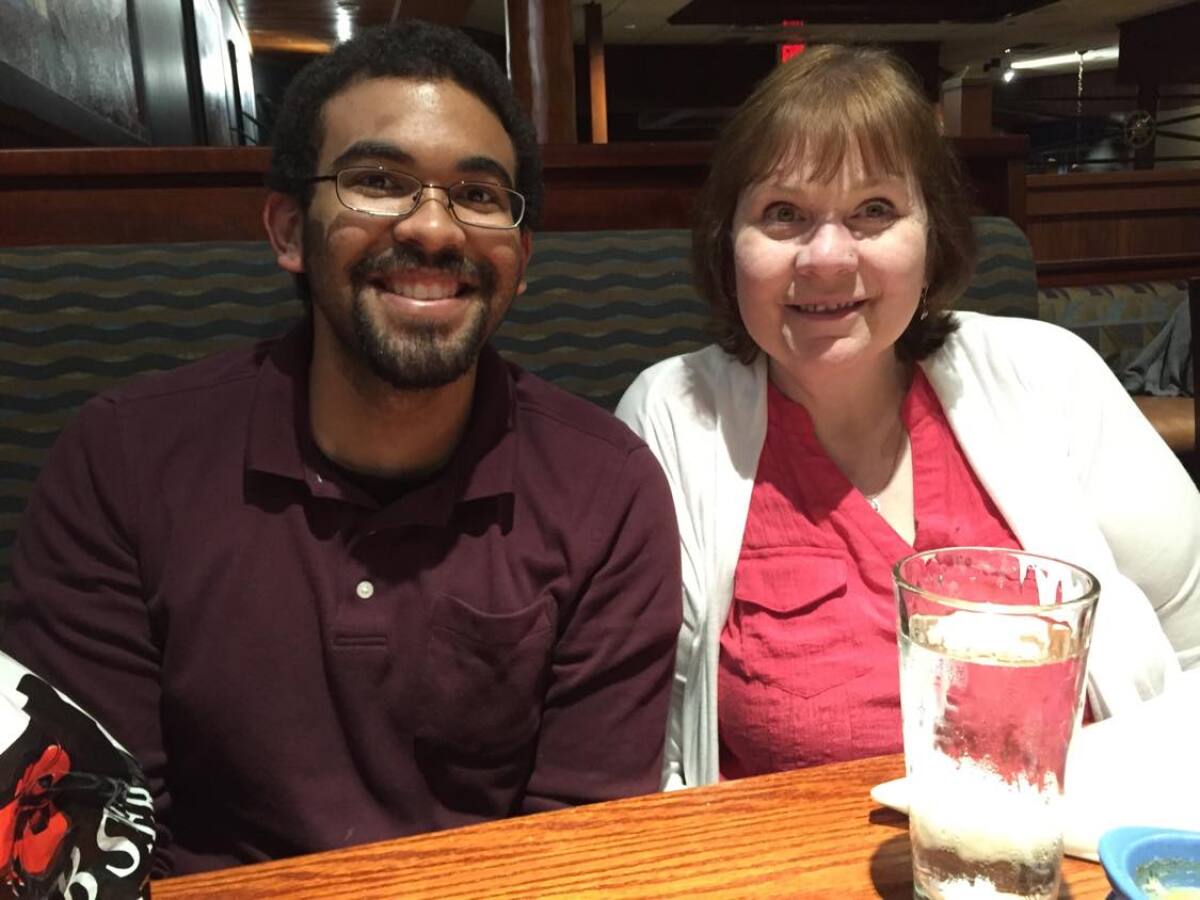
When Shari Biagas was laid off from her healthcare information technology manager job in Temple, Texas, in May 2021, she didn’t expect to retire just yet.
She loved her job and had planned to continue working there as long as she could. Then her employer outsourced the IT department.
“I didn’t think that I would be retiring at 62, early,” Biagas said. “The idea of being laid off was never in my mind ever. … I really thought I had at least a few more years to work.”
Biagas searched for employment elsewhere without success. Health issues made it difficult for her to work as well. By January, she had decided to embrace early retirement.
But she knows her current funds won’t last her forever.
Biagas still has two years left on her car payments and about seven years on the mortgage for her house, which she bought without a down payment in 2006, right before the housing bubble burst.
She estimates her 401(k) and cash savings will last her maybe five years, and she’s already drawing from her Social Security.
She’s hoping to get a part-time remote job, possibly as a proofreader or something in the medical field — Biagas spent eight years as a nurse in a hospital oncology unit. Until then, she’s trying to enjoy her retirement while keeping costs low.
“Spending more time with friends — that’s pretty much it,” Biagas said. “I have not done any traveling. I do read and play games to keep my mind working.”
‘My priority was being a parent’
At the start of 2021, Maryann O’Connor sold her house and moved in with two of her friends in Cumberland, R.I. They take turns cooking, watch MSNBC together and call themselves the “Golden Girls.”
After adopting and raising three kids on her own, the 66-year-old doesn’t know when she’ll ever be able to retire. She started her own business in 2007, DaiNell Bookkeeping and Consulting, becoming self-employed to work from home and take care of her kids. Before that, O’Connor worked in finance for organizations including an executive coaching company and a university.
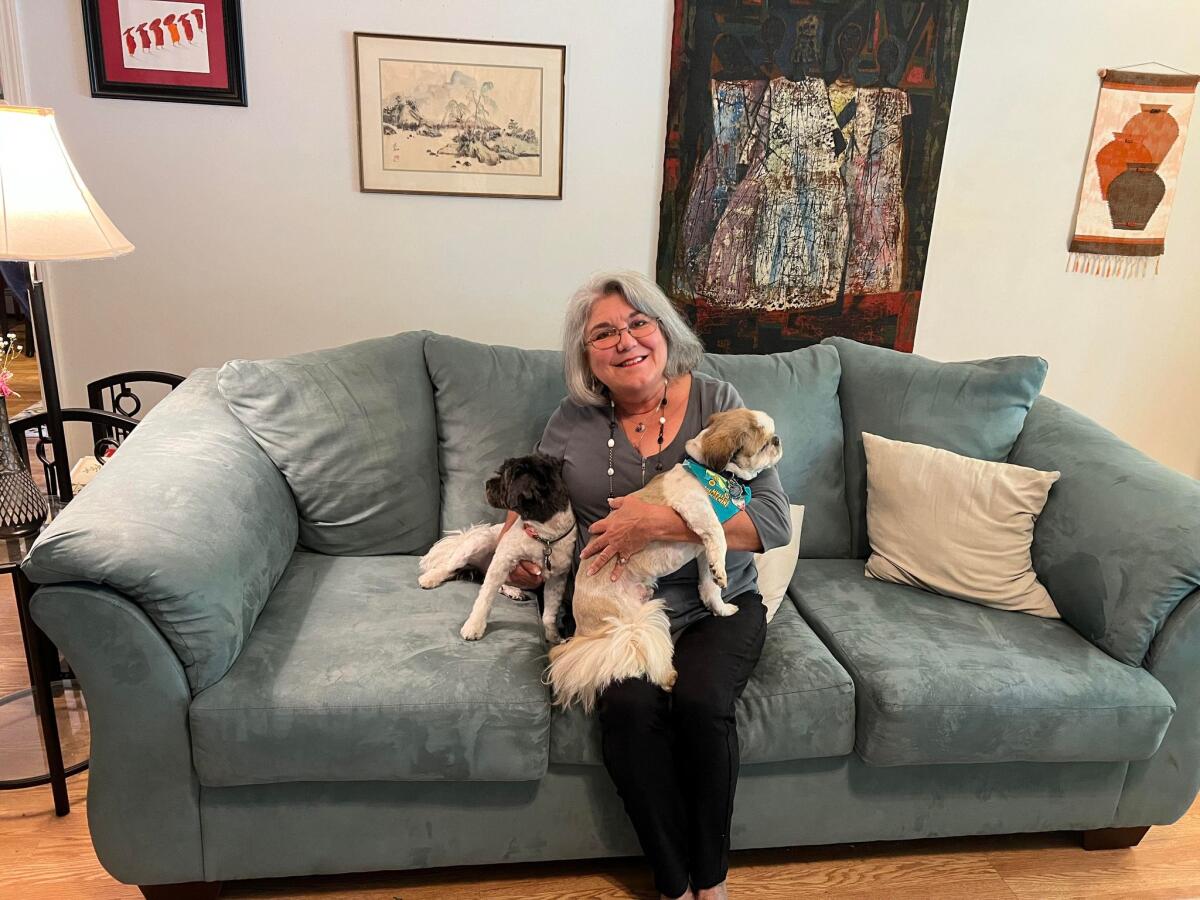
She has some retirement savings in an IRA invested in the stock market, but not much.
“I’ve always thought about [saving for retirement], but being a single parent, my priority was being a parent,” O’Connor said.
Her kids are all in their 20s. They’re still “getting established themselves,” but she hopes they might be able to help her out financially once she gets older.
With COVID-19 decimating many of her small-business clients, her bookkeeping company is a fraction of what it used to be. She also started a travel business for women — right before the pandemic hit.
Republicans keep coming up with ways to destroy Social Security. Don’t let it happen.
Since then, she’s been working to rebuild both businesses while starting another that helps people manage care for their elderly relatives.
“I wanted to retire 10 years ago but I’m hoping to be able to support myself at least till I’m 70 to get the full Social Security,” O’Connor said.
‘Is today the day you’re going to retire?’
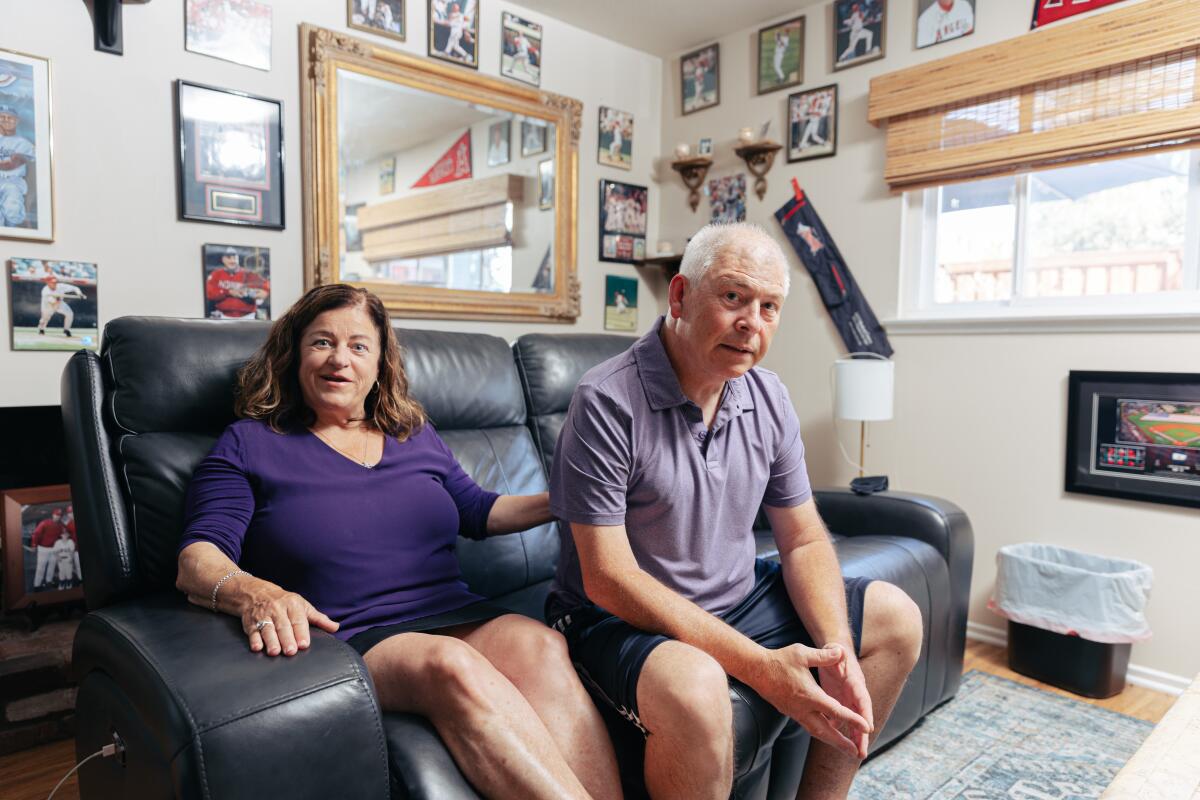
After working for Southern California Gas Co. for 27 years, Melisa Marks had a difficult decision to make.
In the last few years, she witnessed friends her age pass away and co-workers get cancer. Her husband, who retired five years ago from the Orange County Fire Authority, would ask her every morning: “Is today the day you’re going to retire?”
“I don’t think that I want to stay working and not be able to enjoy what I already have,” Marks, 58, said.
So she sat down with a financial planner and looked at her pension, her husband’s pension, years of 401(k) contributions, and her own savings squirreled away on top of that. She can’t take from her pension or 401(k) yet without a penalty, so they would have to survive on her husband’s pension and personal savings for the time being.
They still had 12 years of payments left on their house in Huntington Beach, but their financial planner said they should continue paying it off gradually since they had a good interest rate.
Marks looked at her insurance plans as well as her internet and TV plans to make sure they were getting the best rates and paying only for what they really needed. She saved about $300 a month by just doing that, she said.
With relief, Marks enjoyed her first day of retirement Aug. 1.
“My father passed away early this year, and I just hope I’m able to be one of the ones in his family where he was able to be retired longer than he worked,” Marks said. “I don’t think there’s probably too many in that group.
‘I look forward to enjoying grandkids’
For the record:
12:04 p.m. Sept. 29, 2022A previous version of this article misspelled Rosa Aleman’s name as Rose. It also said her monthly pension benefit will increase by $2.82 for every hour she works for the hotel; that figure is actually what the hotel pays into the pension fund, not the incremental increase in her benefit.
After 23 years as a room attendant at the Beverly Hilton hotel, Rosa Aleman plans to retire when she turns 65 in six years.
Under her current union contract, workers like Aleman would accrue a monthly pension benefit of $1,000 for every 15 years worked, said Maria Hernandez, a spokesperson for Unite Here Local 11 who translated the interview.
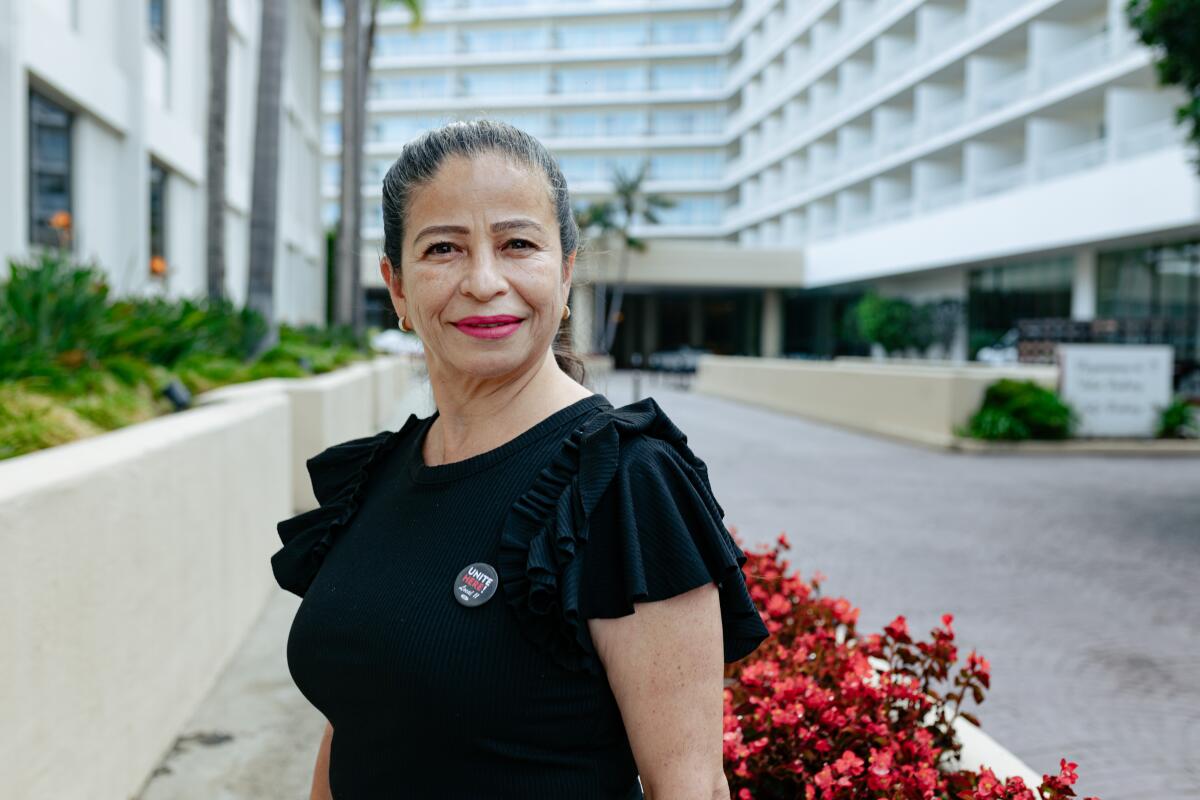
For decades, Aleman has provided for her mother and siblings in El Salvador, so she doesn’t have much in personal savings. She plans to rely on her pension and whatever she can get from Social Security when she retires. Her husband is looking for work after being fired from a nonunion job that “left him with nothing,” Aleman said.
“I’m concerned about the inflation around retirement, but what concerns me more is learning about a lot of people who happened to pass away before they retire,” Aleman said. “I hope to be able to retire to enjoy the rest of my life.”
In her post-retirement plans, her daughter, who is earning her master’s degree at UCLA, plays a large role.
“I look forward to hopefully enjoying any grandkids that my daughter gives me when she gets married,” Aleman said.
‘My body and mind told me it was time’
William Strachan, 68, was adamant about not delaying retirement too long.
“I find that people if they retire after 65 or if they retire after 70, they just lose something in them,” said Strachan, who is single and lives with a miniature schnauzer named DJ.
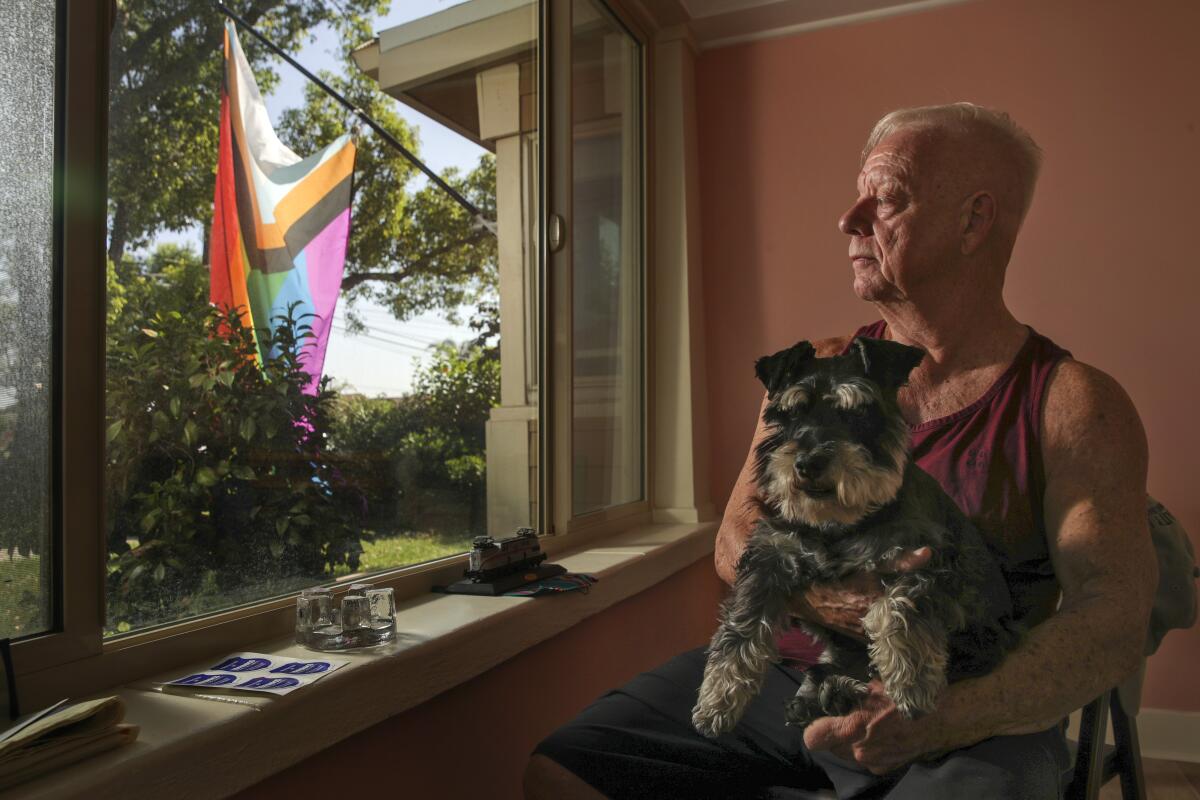
He retired right on schedule, at age 64, in February 2018. “I was ready,” he said. “My body and my mind told me it was time.”
But the timing soon proved not ideal. “Once the pandemic hit, that kind of just blew life apart,” he said.
Instead of traveling across Europe and visiting family in Maryland, Strachan bunkered down at home with the rest of the country and made the most of his retirement at home. He does landscaping in his yard, works out with a personal trainer twice a week and attends church on Sundays.
Financially, Strachan had been preparing for a while. He has a pension with the Los Angeles County Employees Retirement Assn. after working as a registered nurse for the county, disability money from the U.S. Department of Veterans Affairs, and a little bit of Social Security on top of that.
He doesn’t have any money in the stock market. But as a member of SEIU Local 721, he had another savings account with a 4% match from the county that he contributed to over the years, and he cashed it out to invest the money in his house, which he purchased in Ontario in 2003.
Strachan started his career in the Navy as a hospital corpsman but left on a medical discharge after a surgery gone awry. He got his bachelor’s degree and his registered nursing license, eventually working at Los Angeles County-USC Medical Center for 26 years.
Even if retirement hasn’t been quite the way he pictured it, he has no regrets about leaving the workforce when he did. Being a registered nurse “can be very hard mentally and physically,” Strachan said. “My brain was burned out.”
‘I kind of let the technology pass me by’
A forklift operator since 2004, Jerry Williams didn’t know much about finding work online. He didn’t even own a computer.
“I’m a forklift driver,” Williams said. “Why do I have to learn how to look for jobs on computers? That’s what I thought.”
Then Williams, who lives in Grand Prairie, Texas, lost his job in a dispute with his boss. Suddenly, his lack of tech savvy was preventing him from saving for a better retirement.
Recession fears raise risks for California’s public pension funds.
“This is nobody’s fault but mine. I kind of let the technology pass me by,” he said. “None of this is an excuse. I just let it slip by.”
Still, as an experienced driver in an economy that lives on warehousing and distribution, he wasn’t too worried. When he began to hear about job openings through Seniors4Hire, he figured his four-month search was close to an end.
Instead, he kept hearing rejections or that the position had already been filled.
“A staffing agency called me and said, ‘We’ve got a job for you. Just come in and fill out the paperwork,’” Williams said. “I did that and when they [saw] my age, they said the job wasn’t available anymore. Two days later, I find the same job listed that they said wasn’t there anymore. It’s been like that a lot. It’s discrimination.”
It was too much for Williams to endure. “I’ve applied for Social Security,” he said. “If something finally does come up, I will go back to work, but for now, I’m done.” It will be a very frugal retirement, but Williams had already decided he could live with less than he planned to have.
“Retirement’s not going to be much, just what I need to live comfortably, my kind of comfortable,” Williams said. “Nice and easy, coffee on the porch in the morning, groceries in the house and gas in my truck. I’ll be alright with that if I have to be.”
‘Oh gosh, this is not good’
Larry Smith’s financial planner knows him as the kind of cautious client who likes to double- and triple-check everything. As the moment for retirement drew near, Smith, 64, considered, waited and ultimately decided that the timing was not right in 2018, 2019 and again in 2020 and 2021.
In March, the L.A. resident finally told his boss at the L.A. County Sanitation District, where he worked as an engineer, that he was planning to retire at the end of September. “Of course, that’s when the inflation stories became a drumbeat,” he said. “I thought, ‘Oh gosh, this is not good.’”
Smith’s pension is set to rise slowly, up to 2% a year, with the first increase not coming until 2024.
Still, Smith pressed on with his plans, too weary of the stress and uncertainty of his job. He had put in 30 years toward his pension; it would have to be enough.
“When you come to work in the morning, you think you’re going to do one thing, and it turns out to be something you never saw coming,” he said. “I call it the hamster wheel, and I wanted to jump off.”
Giving him pause was the thought that he might need to rely on his pension for another 30 years; longevity runs in his family. “I thought, ‘If I’m going to need more money, the time when I can earn the money is now, because less people are going to hire me when I’m 75,” he said.
Used to Smith’s second-guessing, his financial advisor has assured him it should be OK without supplemental income.
“She’s telling us, ‘You’re going to wind up with money you can leave to someone.’ I understand what she’s doing and I sort of believe it. I mean I do, I guess, in my logical brain, I believe it, but in my emotional brain, I just worry, still.”
‘This year kind of threw us off track’
As a career human resources professional, Genevieve Vigil constantly beat the drum about the importance of 401(k) contributions.
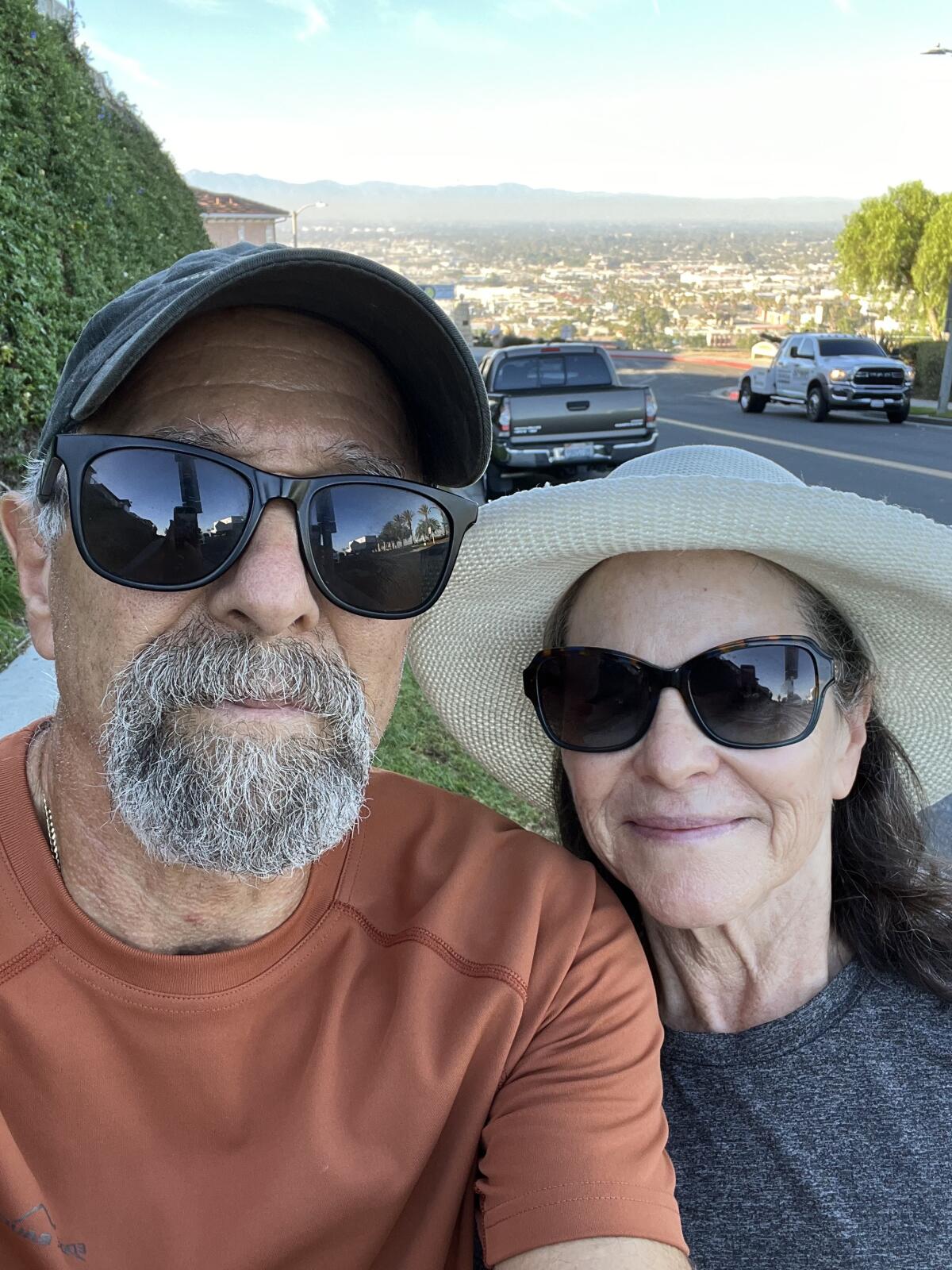
“I was always petitioning management to do better matches, to have reasonable administration fees,” she said. “I was always talking to every employee about taking advantage of the company matching your contributions: ‘This is free money.’”
One person who needed to hear that message was her husband. “He did not always maximize his 401(k) deduction. But he really improved.”
With a pool of savings and untouched IRAs, Vigil avoided taking Social Security before her 70th birthday to maximize the benefit, and her husband was planning to do the same. But now they are thinking he’ll tap his Social Security beginning in November, when he turns 69.
“We’re doing that because of what’s happened to the stock market, and because of inflation and prices,” she said. “This year kind of threw us off track.”
Although neither is contemplating working again, they aren’t slowing down and taking it easy either. She takes free water aerobics classes four times a week, and they walk four miles three times a week in Signal Hill.
“The day will come where we can’t do any of those things, so we might as well do them until we can’t,” she said.












